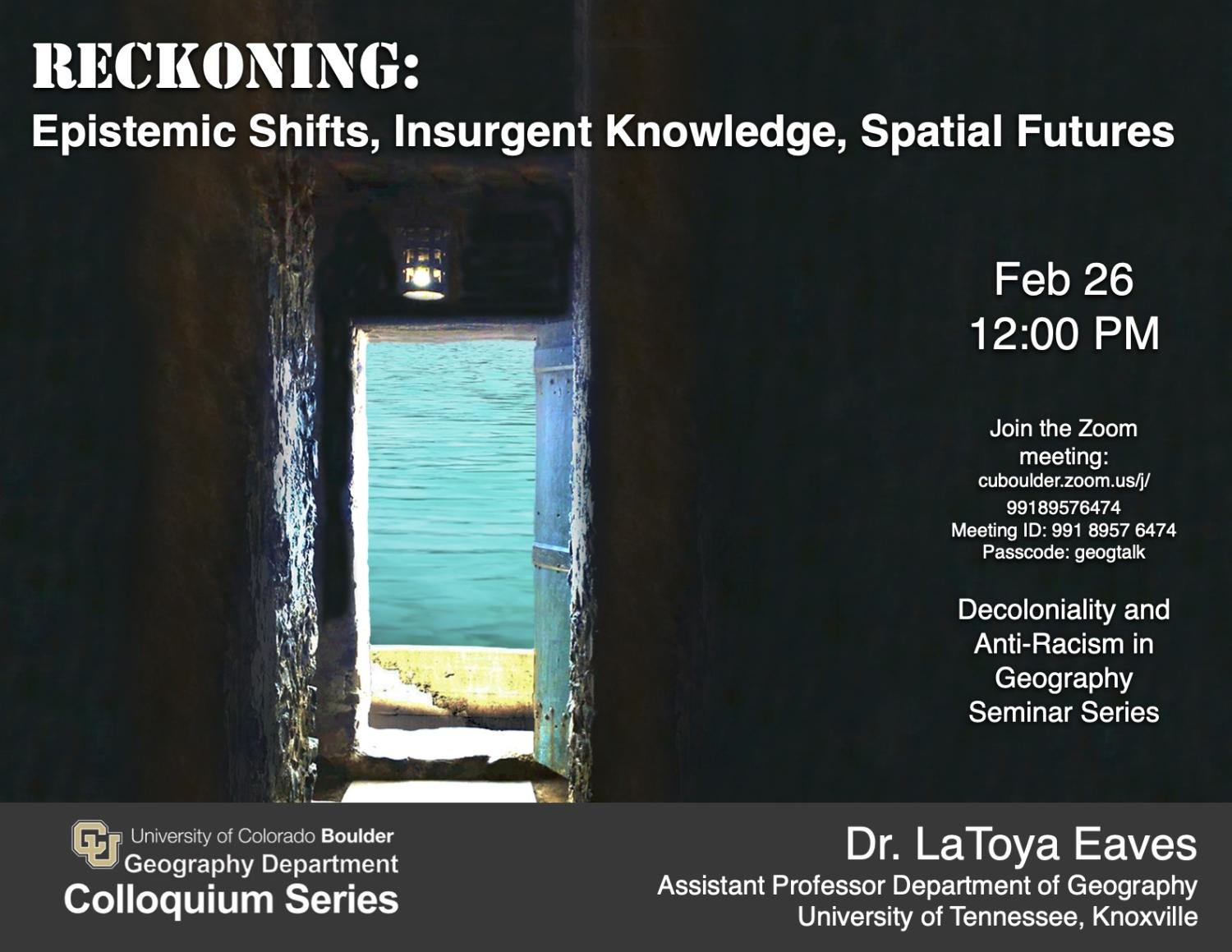Reckoning: Epistemic Shifts, Insurgent Knowledge, Spatial Futures
Department of Geography Colloquium
Decoloniality and Anti-Racism in Geography Seminar Series
Dr. LaToya Eaves, Assistant Professor
Department of Geography, University of Tennessee, Knoxville
Friday, March, 12th at 12:00PM MT
Join the Zoom meeting: https://cuboulder.zoom.us/j/99189576474
Meeting ID: 991 8957 6474
Passcode: geogtalk
Abstract
In a critique of Western imperialism’s impact on indigenous research projects, Linda Tuhiwai Smith (2013) argues that every aspect of the production of knowledge must be understood in order for decolonization of research to occur. For geography to accommodate “indigenous ways of knowing” requires transforming and shifting power relations to account for the landscapes of white supremacy and imperialist practices that shape epistemological, pedagogical, and departmental climates. The paper highlights Black geographic thought and praxis as a way to encounter and shift geography’s epistemological prospects, asking (1) What role does the unknowable geographies of Black subjects have in/on renovating dominant spatial processes; (2) Can/should Black theoretical and spatial intimacies—focusing on resistance, histories, and, the everyday across space and time—augment geographic thought? The paper introduces one intellectual lineage of Black women’s geographic thought in international and transhistorical contexts in order to posit a pedagogy of possibilities, one that makes imperative the centering Black gendered histories and experiences, contesting the seductive normativities of geographic thought, and conceptualizes the “ungeographic”, suggesting and highlighting the “absented presence” (McKittrick 2006) of Black women that can redetermine and revolutionize geographies.
Bio
Dr. LaToya Eaves is an Assistant Professor of Geography at the University of Tennessee, Knoxville. Eaves’ research and teaching interests are at the intersections of race, gender, diaspora, critical geography and sexuality studies, and she has published on the emancipatory geographic practices of Black women in the U.S. South. Among current active projects, Eaves was recently awarded a research grant from the National Science Foundation to analyze the role of race, place, heritage, memory, tourism, and community and civic engagement through African American History Museums (AAHMs) across the United States. Eaves is also founder and served as inaugural chair of the Black Geographies Specialty Group for the American Association of Geographers. Eaves was named the recipient of the 2019 Ronald F. Abler Distinguished Service Honors through the American Association of Geographers.


